Imagine that you’ve spent countless hours recording and editing the perfect video for YouTube. After a few finishing touches you post the video and wait for it to go viral! But when you check on your video the next day, you see that it has been taken down by YouTube. Why, you ask! YouTube’s copyright policy. It was removed because you did not have licensing privileges for the background music. What’s worse is that YouTube has now tagged your account, and any further violations could jeopardize your entire video library. So what is copyrighted music, and how can you avoid having your video removed?
What is a music copyright?
When a musician writes and records a song, it becomes their property, and they have protections from the law to make sure someone does not use that intellectual property to make money without the permission of the artist. These protections are known as copyrights. Copyright law can be pretty complicated, but the short version is that you cannot use copyright materials without paying for them. On YouTube, you do not necessarily have to credit the music artists you use in your content, but you have to make sure that they receive the appropriate funds for use of their property. YouTube has two systems which work together to ensure that intellectual property (IP) is protected and remunerated on their platform. The first is a place where content creators (musicians, video artists, etc.) can submit claims for anything that violates their rights, and the second is the video upload protocols, which police for copyright infringement.
What is YouTube’s policy on copyright violation?
So what happens if a video violates YouTube’s copyright policing protocol, or if an artist makes a claim of copyright infringement? YouTube has a variety of policies in place to protect copyrighted materials, particularly music, which is one of the most frequent content area violations. YouTube can simply mute the entire video making it so that all audio content is no longer accessible. The other way is for YouTube to monetize the video by running ads against it, then using that money to reimburse the music artist, while running viewership statistics and potentially providing a method for the musician to provide a music license at a high premium. Ultimately, if a video on YouTube violates music copyright protocols, then the person making the money has the music licensing rights, even if the rest of the content does not belong to them.
How can you avoid a copyright claim?
There are three ways to avoid a copyright claim.
The first is to forfeit any and all monies produced by the video to the music artist. If you have no claim to monetize a video and make arrangements for the artist to claim all the money, then YouTube will generally let you use the artist’s content.
The second is to contact the artist or their music publishing company to get permissive use if you want to monetize your video. However, this is a time-consuming and expensive method which can take years to accomplish and can cost tens of thousands of dollars. That’s why we recommend using the third and easiest way.
You can use production music. Production music is pre-recorded music created specifically to be used in projects like advertising and YouTube videos. Production music companies have vast libraries of songs to choose from, and have a streamlined, affordable process to acquire those songs.
Where can you acquire production music?
Production music can be purchased from a production music company. Companies like Level 77 Music host massive libraries with thousands of tracks designed specifically to be used in YouTube videos like yours. The songs cover every imaginable genre and style of music, each with an expedited acquisition plan and various affordable price points. Exploring the libraries of a company like Level 77 Music may even give you ideas for songs and styles which might not have originally appealed to you. Best of all, the songs all come with full copyright permissions and licenses, so there are no complications from YouTube’s copyright protocols.
You’ve worked too hard on your content to have it shut down and muted by YouTube for copyright infringement. Take control of your music choices by leveraging the affordability and flexibility of a music production company to fulfill all your music needs.
